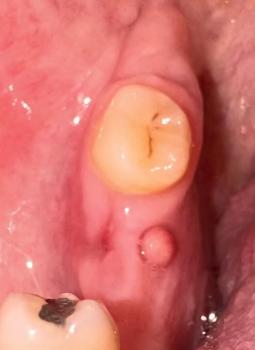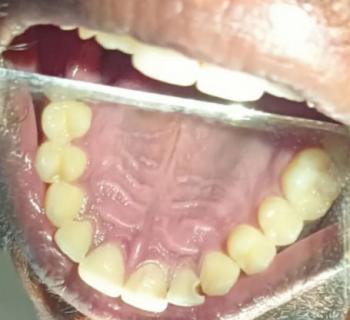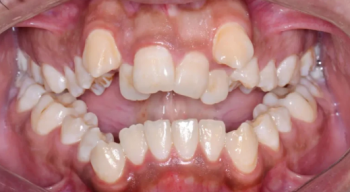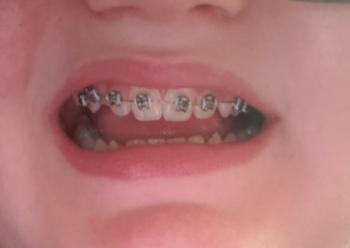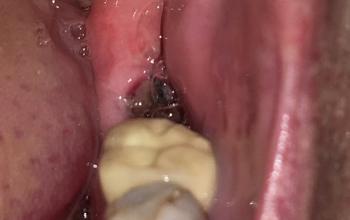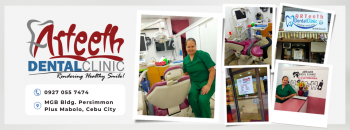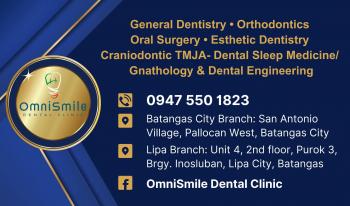Modern Dentistry, Timeless Smiles.
Pregnancy Destroyed My Teeth: An Honest Dentist's Recovery Plan
Language :

What you are experiencing is a profound physical toll from a massive physiological undertaking: growing and feeding multiple human beings. Be gentle with yourself; this is not a failure of your care, but a consequence of your body's incredible work.
Let's break this down into three parts: Understanding Why this is happening, Addressing Your Immediate Pain and Fear, and Creating a Practical Path Forward.
1. Understanding the "Why": This Isn't Your Fault
You've hit the nail on the head. Pregnancy and breastfeeding create a "perfect storm" for your teeth:
-
Hormonal Changes: Elevated progesterone and estrogen increase blood flow to the gums, making them more sensitive, prone to inflammation (pregnancy gingivitis), and vulnerable to the bacteria that cause decay.
-
Calcium Demands: If your dietary calcium isn't sufficient, your body will pull it from your bones and teeth to support the baby's skeleton. This can weaken your teeth.
-
Acid Erosion: Morning sickness (even if it's just in the first trimester) bathes the teeth in stomach acid, softening and eroding enamel. With four pregnancies, that's a lot of cumulative exposure.
-
Dietary Changes: Cravings for carbs/sugars and the sheer exhaustion of caring for little ones can lead to snacking and less-than-ideal oral hygiene routines. It happens to the best of us.
-
Breastfeeding: This continues the high metabolic demands on your body, prolonging the period where your oral health is vulnerable.
So, please, let go of any guilt. You have been in survival mode, and your body has prioritized your babies. Now it's time to prioritize you.
2. Immediate Triage: Managing the Pain and Fear Now
The fact that you're taking ibuprofen daily and your mouth "aches" is a major red flag. This indicates significant inflammation and/or infection. We need to address this urgently.
First, and most importantly: You need to see a dentist. I know it's terrifying and expensive, but an infection in your tooth is an infection in your body. It will not get better on its own and can have serious consequences. The goal of this visit is diagnosis and pain relief, not necessarily immediate, expensive treatment.
Regarding the Root Canal and Your Fear:
You said the magic words: "I can’t even handle the 'pressure'." This is the key to your solution.
-
Modern dentistry should NOT be about "grinning and bearing it." A root canal, when done correctly with adequate anesthesia, should feel no different than a routine filling. The pain you're feeling right now from the infected tooth is far, far worse than the procedure itself.
-
Your Job: You must communicate your fear and low pain tolerance before the procedure. Say this exactly: "I have an extremely low tolerance for pain and pressure. I am very anxious. I need you to ensure I am completely numb and that we use techniques to minimize the sensation of pressure."
-
Ask About Sedation: Many offices offer nitrous oxide ("laughing gas"). This is a game-changer for anxious patients. It doesn't put you to sleep, but it makes you profoundly not care about what's happening. You'll feel relaxed and detached. It's safe and wears off quickly. This is worth asking about and budgeting for.
Financial Realities and the "Extraction vs. Root Canal" Question:
I understand the financial constraint completely. Here is my professional advice on this difficult choice:
-
Extraction: This is a valid, necessary, and much more affordable option to eliminate a source of pain and infection. However, removing a tooth, especially a molar, has long-term consequences. The opposing tooth can supra-erupt (move down into the space), and the adjacent teeth can tilt, leading to bite problems and food trapping that causes more decay.
Given your severe pain and financial situation, an extraction may be the necessary and correct short-term solution to get you out of crisis. While not ideal, stopping the active infection is the top priority.
What You Can Do Tonight to Manage the Pain (Until You See a Dentist):
-
Salt Water Rinses: Mix 1/2 teaspoon of salt in a glass of warm water. Swish gently for 30 seconds and spit. Do this 4-5 times a day. This helps reduce inflammation in the gums and can draw out some infection from around the tooth.
-
OTC Pain Management: You're already on ibuprofen. If you can take it, alternating ibuprofen (Advil) and acetaminophen (Tylenol) is very effective for dental pain (e.g., ibuprofen at 12 pm, Tylenol at 3 pm, ibuprofen at 6 pm, etc.). Important: Always check with your doctor or pharmacist first to ensure this is safe for you, especially while breastfeeding.
-
Clove Oil: This is an old but effective remedy. Dip a cotton swab in clove oil (available at pharmacies) and gently dab it only on the painful tooth and gum. Do not swallow it. It has a natural numbing effect (eugenol).
-
Cold Compress: Apply an ice pack or a bag of frozen peas to the outside of your cheek over the painful area for 15 minutes on, 15 minutes off.
3. The Path Forward: Saving Your Smile and Your Sanity
The thought of dentures is a cry of despair that I hear often. At your age and with your history of caring for your teeth, dentures are an absolute last resort. They come with a host of their own problems (bone loss, fit issues, dietary restrictions) and are not a simple solution.
Here is your long-game plan:
-
Find a Compassionate Dentist: Look for a practice that advertises "sedation dentistry" or "catering to anxious patients." Read reviews. Your first visit should be a consultation where you feel heard, not judged.
-
Prioritize Treatment: Work with the dentist to create a phased treatment plan. Phase 1 is "Disease Control": address the active infections and pain (like that one bad tooth and the wisdom teeth). Phase 2 is "Restoration": fixing the other cavities and getting you stable.
-
Ask About Financial Options:
-
CareCredit: This is a healthcare credit card used by many dental offices. It often has promotional no-interest periods.
-
In-Office Payment Plans: Some offices will work with you on a payment plan.
-
Dental Schools: The care is provided by supervised dental students at a significantly reduced cost. It takes longer, but the quality is excellent. This is a fantastic option for major work like root canals and extractions.
-
-
Re-optimize Your Home Care for a "Post-Pregnancy" Mouth:
-
Electric Toothbrush: If you don't have one, get one. They are superior at plaque removal and gentler on your gums.
-
High-Fluoride Toothpaste: Ask your dentist for a prescription for Prevident 5000 or a similar product. This is much stronger than OTC toothpaste and can help remineralize early cavities and strengthen your enamel.
-
Floss, Floss, Floss: The hormonal changes make your gums the primary target. Flossing is non-negotiable now.
-
Xylitol: Use xylitol mints or gum after meals and snacks. It helps reduce the cavity-causing bacteria.
-
Rinse with Water: After any snack or drink (especially if you're sipping juice or soda all day), swish with water to neutralize the acid.
-
You have been through a marathon. Your body has given so much. It is now time for a season of repair. The situation feels overwhelming and hopeless, but I promise you, it is not. Dentistry has the tools to get you out of pain and back to a healthy, functional smile that you don't have to think about every day.
Start with one phone call. Schedule that consultation. Be brutally honest about your fear and your budget. A good dental team will respect that and work with you. You can and will get through this.


